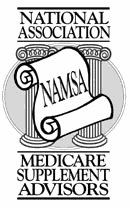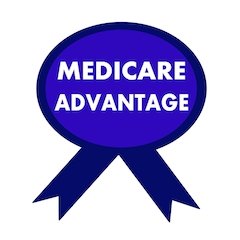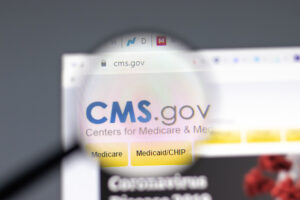The National Association of Medicare Supplement Advisors, Inc. (NAMSA) is headed up by Ron Iverson. The association monitors and informs on developments in Medicare, CMS, Medicare Supplement, and Medicare Advantage. We spoke about several current issues in the industry with Ron, in what proved to be a very fruitful conversation. Why are your members drawn to NAMSA specifically? Basically because of our educational philosophy. We offer courses for full members. One course is on Medicare, Medicaid, and Medicare supplement, and the second one is a marketing guide for product sales. Although the course indicates Medicare “Supplement” instruction, we also cover Medicare “Advantage” in the courses because most of our members produce both, in addition to Medicare Part D. We cover those programs to assist new members who can gain from the Supplement and Advantage and Part D program instruction. We’re the only ones who currently do this, and we feel it proves beneficial for new people getting into the business, as well as for older producers that have wanted to catch up. Beyond that, we offer our newsletter. The idea is to update the members on what is going on with Medicare. We’re the only association that addresses Medicare matters at the beginning, and then follows through with industry updates over time – a NAMSA member will get both a foundation and a continuing education in Medicare-related matters. People interested in representing Medicare products can go to our website, www.NAMSA.us to find further information regarding our educational objectives. What types of tools or services does NAMSA offer to its members? We have the marketing book that I have written for our membership. I go through all kinds of situations and background, and tailor it to best practices in the Medicare sector. We offer newsletters frequently, in which we put a lot of Medicare statistics. For us, our philosophy is that agents can pick and choose what they want to get out of membership, but I try to keep them up to speed with what’s going on in Washington, as Medicare is a constantly-changing industry. We are not structured as an advocacy organization but we have been forced to become that because two years ago, we helped fight the Kerry-Stark bill. When PPACA was passed, Senator Kerry and Representative Stark introduced a bill that would apply the healthcare law’s new medical loss ratio rules to private Medigap plans. The legislation was dubbed the “Medigap Medical Loss Ratio Improvement Act”, and it was designed to bring up requirements for individual and large group markets. However, it would have cut Medicare producers’ commissions in half, as it had done in the individual major medical and group health fields. We were able to play a part in defeating those two bills. What challenges do you feel your members are facing at this time with marketing or business development – and on the flip side, what opportunities do you see for your members? The main challenge goes back to the ever-changing landscape. Beyond that, the challenges are the same as for everybody: finding customers, finding clients, finding leads. In Medicare, many agents are using telemarketing leads, and of course we will tell them of lead houses that are available where they can get telemarketing leads or direct mail leads, but we don’t actually offer any lead services ourselves. In terms of opportunity, there is incredible opportunity here. There are ten thousand people a day turning 65 nationwide. This will continue for another 15 years. So anybody that gets into the business nowadays pretty much gets into a guaranteed market. What are your upcoming goals for NAMSA? Going forward, we have two objectives on problems that need to be fought. The first is a concept called cost-sharing that has been kicked around in the House and Senate, as well as by some high power groups. Cost sharing really amounts to cost shifting, whereby people on Medicare would be expected to pick up a larger share of their medical expenses. This situation will come to a head before too long, because Congress is trying to figure out how to get away from the SGR (sustainability growth rate), and pay the doctors more because they’ve been scheduled for decreases every year, and instead of decreasing, Congress raises payments. Getting rid of the SGR will cost some money, and they’ve figured that it would cost about $14 billion every year to get rid of SGR. Part of this money would come from Medicare recipients, who would make up the difference in large part, and that’s a major problem. We want to defeat these proposals.
The other objective revolves around a problem that has developed more recently. Medicare has dictated to hospitals that they are admitting too many people. A hospital can “admit” a patient, or “observe” a patient. Admitting a patient costs Medicare and the Centers for Medicare Services (“CMS”) more money. Patients don’t know whether they’ve been tagged as an “admitted” patient or an “observed” patient, but hospitals have a coding that they use. If hospital administrators aren’t careful, CMS will visit the hospital and tell them that they shouldn’t have admitted so many people. Being admitted means you can receive 20 days of skilled care in a skilled care facility, and Medicare will pick up 100 percent of that cost. There are many cases in which, for example, a woman will spend five days in a hospital with a broken pelvis, and will be coded as “observed”, so that when she leaves the hospital, she has to pay for her own skilled care. This could amount to something like an $8,000 bill from a nursing home, but since the woman cannot walk, she has no choice but to pursue this care. These large bills also often come as a shock, as the patients don’t often know they are coded under “observed.” In 2012, 1.6 million people lost the skilled care benefit in the nursing home. These cases occur most frequently when they relate to cardiac issues, strokes, and broken hips. The coding system is very complex, and the software is severely expensive, so it’s a big job to teach workers and office staff how to code for admitted and observed patients. CMS doesn’t leave hospitals with much sensible instruction on how to code, so we have to fight that. The American public doesn’t know about this phenomenon. All of the behind-the-scenes stuff doesn’t generally get into the media and the papers, because it’s complex and confusing. We can use all the help we can get to spread the word.
If there is anything I overlooked that you’d like to share/one aspect of your association that people in the industry should know, what should it be?
They should know that if they are going to get into the Medicare field, the easiest way is to learn via the courses that we offer. And that’s it! Education is the key to to the whole thing and it’s our motto, too.
I wrote in a recent newsletter that what you don’t know can’t help you – it’s a twist on the expression “what you don’t know can’t hurt you.” If agents and producers educate themselves, they’re going to know more than just the standard industry-level, and through the client’s eyes, they’re going to know more than their competition down the street.













